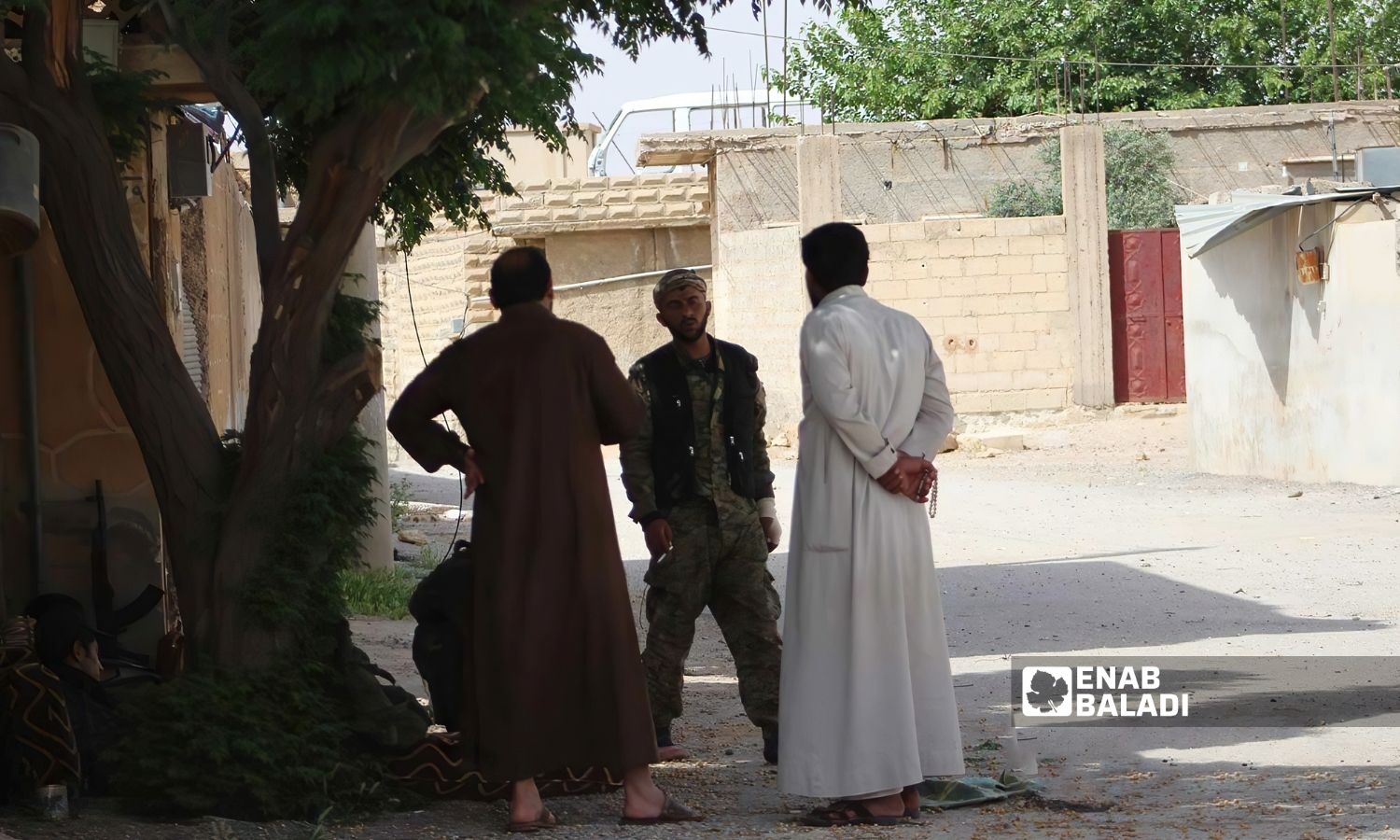



Raqqa – Hussam al-Omar
The 4O-year-old Alwan al-Bishr visited the water office of the Civil Administration in the northeastern city of al-Tabqa to complain about water shortages in his village of Huwaija Zahra for several months since the main drinking water pump broke down.
Al-Bishr told Enab Baladi that the al-Tabqa Water Office, which is affiliated with Raqqa governorate, informed him that the responsibility for delivering water to the village rests with the Raqqa Civil Council, to which the village belongs administratively, even though the same area was served by the Civil Administration in al-Tabqa about a year ago.
Several villages in the western countryside of Raqqa lie between the borders of the Civil Administration in al-Tabqa and the Raqqa Civil Council, which caused the loss of the residents’ rights, and the delay in reaching them or their permanent interruption, according to what a number of the residents told Enab Baladi.
The Kurdish-led Autonomous Administration of North and East Syria (AANES) divided Raqqa into three independent administrations (Raqqa Civil Council, Civil Administration in al-Tabqa, and Tal Abyad District Council).
Each of the three departments follows an independent administrative system, and each provides its services separately, taxes and bills are collected, and agricultural and industrial licenses are independently issued.
The impact of the multiplicity of administrations is not limited to the interruption of drinking water but rather the suspension of the issuance of agricultural and industrial licenses, through which farmers and industrialists can obtain diesel at a subsidized price, residents in the western countryside told Enab Baladi.
Younis al-Ali, 45, an owner of an industrial facility in the village of al-Sahel, said that the Fuel Directorate in al-Tabqa suspended his allocations of diesel fuel, which he used to get weekly to run the diesel generator of his facility.
He pointed out that when he visited the al-Tabqa Fuel Directorate, its employees told him that his license and the licenses of other people had been suspended and demanded that he review the Raqqa Civil Council to obtain a license there in order to get his diesel allocations from the Council.
Al-Ali explained to the employees that he had been getting diesel from the al-Tabqa Fuel Directorate for more than three years, but they told him that the decision to suspend the licenses did not include only him but also included other people.
Factories and industrial establishments licensed by the AANES usually obtain their diesel allocations after paying taxes and obtaining a license. However, industrialists often complain about the lack of allocations.
One of the employees of the al-Tabqa Civil Administration told Enab Baladi via email that the villages whose services have stopped mainly belong to Raqqa city, which (geographically) is closer to them than al-Tabqa.
The source added to Enab Baladi (spoke on condition of anonymity) that the Civil Administration in al-Tabqa was providing services to those villages and the industrial establishments because they were liberated (from the Islamic State) several months before the city of Raqqa.
However, the expansion of the administrative area that belongs to the al-Tabqa administration made the latter take a decision to return these villages administratively to the Raqqa Civil Council.
The source revealed that officially integrating the villages into the Civil Council of Raqqa may take months due to the routine complications related to entering the data of the villages and the number of residents in the Council’s records.
The Syrian Democratic Forces (SDF) took control of al-Tabqa city on 10 May 2017, after the Islamic State (IS) group had retreated, while the SDF took control of Raqqa in late November of the same year.
In a press statement by Raqqa Civil Council on 26 August, the head of the water office in Raqqa, Hussain al-Jarjab, spoke about a meeting that took place with the Civil Administration in al-Tabqa to coordinate the administrative annexation of Huwaija Zahra village to the Council.
Al-Jarjab also indicated that the meeting resulted in an agreement that the Water Directorate would establish a drinking water station in the village after water was cut off from the area.
if you think the article contain wrong information or you have additional details Send Correction